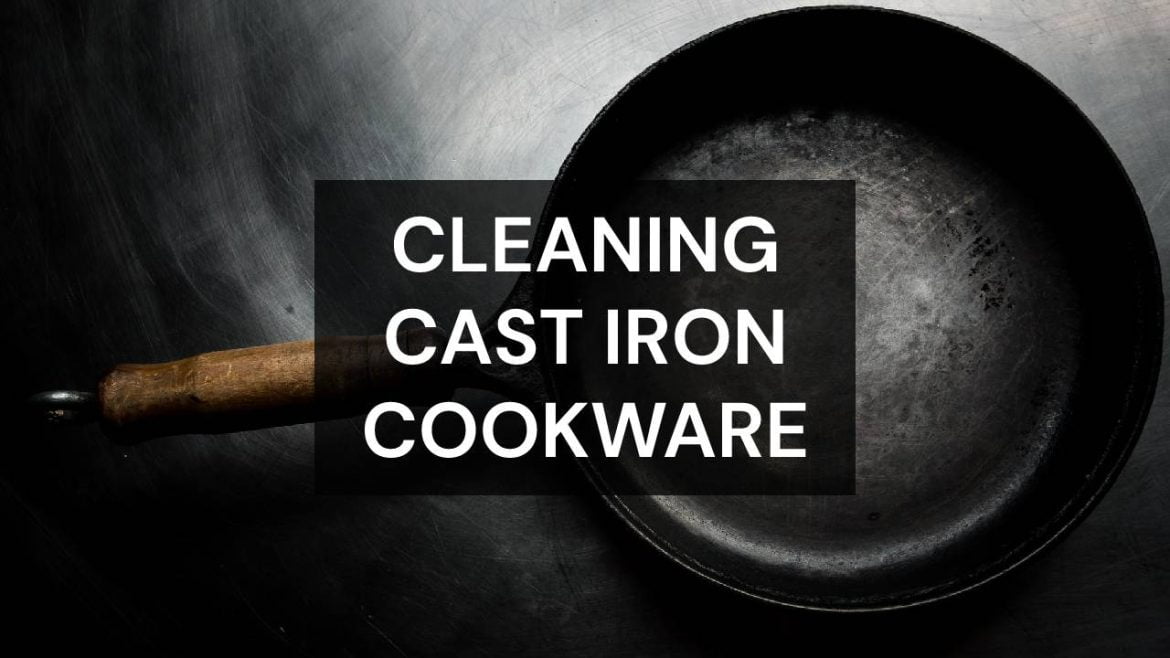Cleaning Cast Iron Cookware – The Only Guide You Need

Cleaning Cast Iron Cookware
One of the most important care for your cast iron cookware is to clean it the right way. Believe it or not, it’s easy. Cleaning your cast iron pan or wok will keep it rust-resistant and maintain its nonstick surface. When done correctly, the quality gets better as time goes by. This post will tell you all about cleaning cast iron cookware correctly.
How do you clean a cast iron pan after cooking?
Clean your cast iron cookware after it has cooled off. Putting it under running water straight will just cause thermal shock that may warp it. Fret not, we’ll guide you here!
Here’s how to clean a cast-iron pan after cooking:
1. Wash with water
The first step in cleaning a cast iron pan after cooking is to scrap the food off with water. Be sure to use hot water if the cookware is still hot. Splashing cold water on a hot pan may cause it to crack.
You can use a wooden spatula to scrape off the stubborn food that sticks on the surface. If there’s a stubborn stain that seems like an eternity to scrap off, boil some water with it and proceed to scrap it off with the spatula again. This is one method that restaurants use to clean their grills. So, it’ll work out for you too!
However, do not use rough scrubbers such as steel wool or scouring pads. These will strip out the seasoning.
2. Dry the cast iron cookware
To dry the cast iron pan, wipe out the excess moisture with a kitchen towel. Don’t use a light towel because the cast iron can stain it.
Do not drip-dry. You can also heat it up on the stove and let evaporation clear off the water. Keep on the heating until it’s truly dry.
3. Lightly oil the cast iron cookware after each cleaning
At this point, your cast iron pan is clean and dried. What’s next is to replenish the seasoning on its surface. To do this, heat up the cast iron pan until it’s hot. Then, pour cooking oil and wipe it all over the pan with a kitchen towel.
Continue to wipe the surface until it looks dark and smooth. No oil residue should remain. Once done, let it cool completely.
Check out our blog for a more thorough guide on seasoning cast iron cookware.
Can you use baking soda to clean cast iron?
The regular method to clean the cast iron cookware is sufficient to keep it in good shape. But, you can also give your cookware a thorough cleaning periodically. So how do you do that? Use baking soda!
Yes, you can use baking soda to clean cast iron cookware. Add some baking soda with a little bit of water and mix to make an abrasive paste. Give it a good scrub. It will remove any food flavours in the pan. Plus, it also can break down burnt food as well as other residue.
Once all the residue and stubborn sticky stains are all broken up, put them under running tap water to flush them away. The first round should’ve removed all the stains from the pan. YOu can repeat these steps to clean it further.
However, do note that this cleaning process will actually remove the seasoning. As you repeat it further, more seasoning will be removed.
So, this will call for a really good re-seasoning session after.
Be alert when buying used cast iron cookware. Make to choose the cast iron cookware that is still salvageable.
How to eliminate rust from cast iron?
One more issue that cast iron cooks can experience with their cookware is rusting. Eliminating rust from your skillets is significant as the rust can truly influence the flavour of your food, and not in a good way!
Iron, water, and air don’t mix well, and if your layer of preparing begins to break down or then again in the event that it hasn’t been prepared well in any case, rust can start to show up in the breaks.
With rusty cast iron cookware, you want to scour the pan or wok completely while holding it under hot water. You want to scour the rust pieces off as much as possible. There’s no other way to do this than to use physical strength and patience.
Since you’re striving to prevent any further rust from forming, you want to ensure that you dry the cast iron after you’ve scoured it in water. If you’ve left any wet spots on the cookware, they can draw in more rust rapidly. Rust will show up again on the unseasoned region of the iron, so it’s additionally vital to re-season the cast iron cookware once you’ve dried it.
When you’re looking to buy cast iron cookware, be on the lookout on any signs of rust. Assess and measure if it’s worth salvaging. It is important to know what to look at to choose a cast iron cookware that suits you.
Does vinegar remove rust from cast iron?
Yes, vinegar does remove rust from cast iron cookware. It will dissolve the rust. However, once the rust is gone, it will now go after the non-rust surface of the cookware. This could lead to possible pitting that is not reversible. It is important to stop soaking it with vinegar once the rust flakes disappeared.
You can soak the item in the vinegar from anywhere between 10 minutes to an hour depending on how rusty it is. The ratio of vinegar to water should be 1 to 1.
Once you’ve done removing the rust with vinegar, its’ time to neutralize the acidity by using baking soda. To do this, rinse the pan or pot in warm water. Then, mix baking soda and water together. Soak the cookware in the solution for 10 minutes.
After that, rinse with clean water again and wipe to remove excess moisture. Then, reseason. Once that’s done, store it in a cool dry place with low humidity.
Cleaning cast iron cookware may take a little bit more effort. But, it is well worth it. It has several benefits such as being non-toxic, versatile, long-lasting, adding iron to your food and more.
Remember that any moisture on its surface will cause rust to slowly but surely form on the pan or wok. Do put layers of paper towels in between the cookware if you’re stacking them up together.
Tips to care for your cast iron cookware
- Never place it in the dishwasher or use soap. Basically, clean it off under heated water after use.
- Right after cleaning, dry the container completely with a spotless material or by popping it in a warm stove for a couple of moments.
- Wipe with oil after drying it to keep a decent non-stick seasoning.
- Continuously put paper towels between the dish and anything you stack it on, or in it, to safeguard preparing and forestall rust.
- Keep any covers slightly open so dampness isn’t fixed in, as shut tops can set off oxidation.
With good practice in seasoning and cleaning cast iron cookware, it can last so long that you can pass it to your younger generations to use. This is by far one of the points that make cast iron cookware better than non-stick cookware of other materials.

